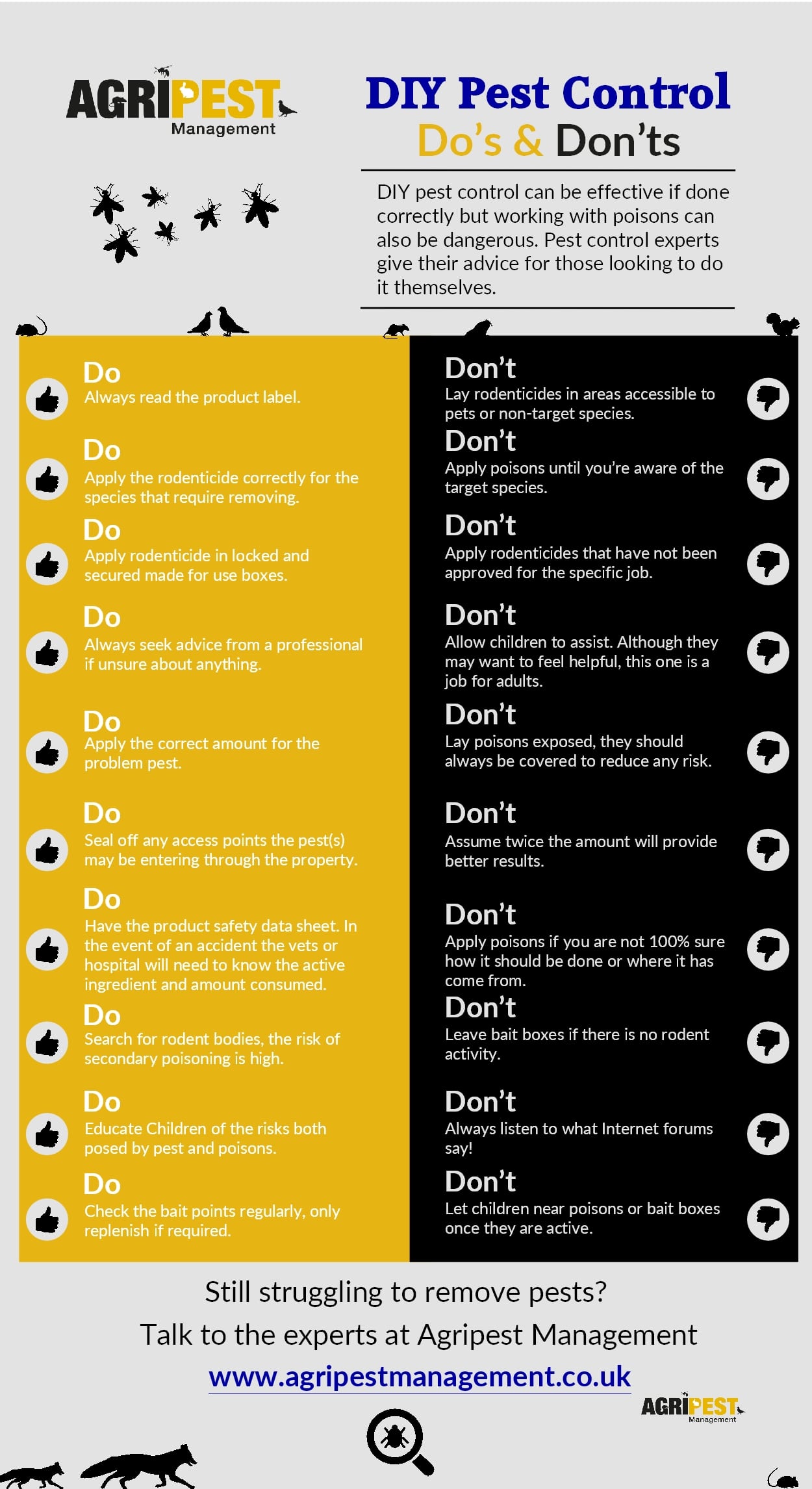Introducing The Techniques Used By Bug Control Specialists Beyond Making Use Of Sprays
Introducing The Techniques Used By Bug Control Specialists Beyond Making Use Of Sprays
Blog Article
Developed By-Josephsen Stewart
Are you tired of counting exclusively on sprays to take care of pests in your house or office? While sprays can work, pest control specialists have actually created innovative strategies that go beyond simply spraying chemicals.
These strategies not only supply a lot more effective and durable services, but likewise concentrate on lessening using unsafe chemicals. By discovering these sophisticated techniques, you will uncover an entire new world of bug control methods that are not just efficient, yet likewise eco-friendly.
So, are you prepared to take your insect control game to the next degree?
Integrated Parasite Management (IPM)
If you're trying to find an effective and environmentally-friendly approach to pest control, Integrated Parasite Administration (IPM) is the solution you require. IPM focuses on long-term prevention and management of insects, rather than just relying upon pesticides. This technique thinks about the particular demands and actions of pests, in addition to the surrounding environment.
By utilizing a mix of strategies such as organic control, environment control, and targeted pesticide usage, IPM intends to decrease the dependence on chemical therapies and decrease harm to non-target microorganisms.
One vital element of IPM is keeping an eye on and recognizing pests accurately. home mosquito control involves on a regular basis examining and evaluating the pest population, in addition to determining the specific species existing. By recognizing the biology and habits of pests, parasite control specialists can establish targeted strategies to interrupt their life cycle and decrease their numbers.
Another vital component of IPM is using non-chemical control techniques whenever possible. This can include physical barriers, such as installing screens or securing fractures and holes, to stop bugs from getting in structures. Furthermore, social techniques, like proper hygiene and waste monitoring, can assist get rid of parasite food sources and breeding grounds.
When chemicals are essential, IPM focuses on utilizing them carefully and as a last resource. This implies picking the least toxic and most reliable option, applying it exactly and only to affected areas, and complying with all safety and security standards. By minimizing pesticide usage, IPM reduces the potential dangers to human wellness and the environment.
Biological Control
To further improve the effectiveness of Integrated Insect Administration (IPM), the following subtopic we'll explore is the technique of biological control. This strategy utilizes natural predators or bloodsuckers to control bugs.
Here are four key aspects of biological control:.
1. Introduction of all-natural enemies: In this technique, useful insects or microorganisms are presented to the area infested with bugs. These all-natural opponents victimize the insects, aiding to reduce their populace.
2. Preservation of all-natural adversaries: Rather than presenting new microorganisms, this method concentrates on creating a suitable setting for existing helpful bugs. This can be attained via providing food, shelter, and water sources.
3. Enhancement: Here, the number of natural adversaries is increased synthetically by breeding and launching them into the infested area. This helps to rapidly lower the pest populace.
4. Push-pull technique: This method combines repellents and attractants to control the actions of insects. Repellents push insects far from plants, while attractants lure them in the direction of catch plants or locations where they can be easily regulated.
Environment Adjustment
Environment modification plays a crucial role in pest control by modifying the atmosphere to discourage bug problems. By making changes to the physical features of a room, you can develop an unwelcoming atmosphere for pests, making it harder for them to survive and flourish.
One typical method of habitat alteration is removing or reducing possible food resources for bugs. This can include correct waste monitoring, securing containers, and tidying up food crumbs.
Additionally, getting rid of or lowering locations of standing water can help manage parasites like mosquitoes.
Changing https://www.theolivepress.es/spain-news/2012/08/02/pest-control-tips-for-a-spanish-summer/ by cutting trees and bushes far from structures can likewise avoid bugs from accessing your property.
Conclusion.
So there you have it - the advanced methods utilized by parasite control experts surpass simply splashing chemicals. Integrated Insect Management (IPM) incorporates numerous techniques to properly manage bugs, while organic control takes advantage of all-natural adversaries to keep bug populations in check.
Environment alteration likewise plays a vital duty in protecting against parasite problems.
Did you understand that according to a research study, executing IPM methods decreased chemical use by an average of 71%? This not just protects our wellness and the setting yet likewise conserves cash in the future.
